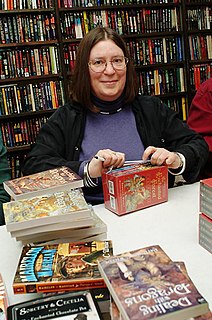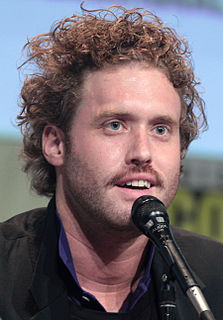A Quote by Brian Sutton-Smith
Children who play regularly with their peers are most likely to achieve the highest levels of adjustment as adults.
Related Quotes
Although adults have a role to play in teaching social skills to children, it is often best that they play it unobtrusively. In particular, adults must guard against embarrassing unskilled children by correcting them too publicly and against labeling children as shy in ways that may lead the children to see themselves in just that way.
Working with children is very different than the way in which I work with adults. I never tell the children the actual truth of the thing that I want them to act. Although children are really into play and play acting, and this is a major part of their existence, they never actually find the playing or acting of adults credible.
Play is the highest expression of human development in childhood for it alone is the free expression of what is in a childs soul.”• “Play is the highest level of child development . . . It gives . . . joy, freedom, contentment, inner and outer rest, peace with the world . . . The plays of childhood are the germinal leaves of all later life.”• “Children are like tiny flowers; they are varied and need care, but each is beautiful alone and glorious when seen in the community of peers.
Look at children. Of course they may quarrel, but generally speaking they do not harbor ill feelings as much or as long as adults do. Most adults have the advantage of education over children, but what is the use of an education if they show a big smile while hiding negative feelings deep inside? Children don?t usually act in such a manner. If they feel angry with someone, they express it, and then it is finished. They can still play with that person the following day.
He's convinced most human adults do not know how to play anymore and that playing is one of the best ways to think. Franky finds children, by far, much more pleasant and intelligent than most adults, but they are easily ruined by their families, schools, and society. He says one of the ways they are ruined is by being forced to think of all the tasks that need to be done as work, not as play. It takes the joy out of living.
In 1600 the specialization of games and pastimes did not extend beyond infancy; after the age of three or four it decreased and disappeared. From then on the child played the same games as the adult, either with other children or with adults. . . . Conversely, adults used to play games which today only children play.
Some kids win the lottery at birth; far too many don't - and most people have a hard time catching up over the rest of their lives. Children raised in disadvantaged environments are not only much less likely to succeed in school or in society, but they are also much less likely to be healthy adults.
Children have a lesson adults should learn, to not be ashamed of failing, but to get up and try again. Most of us adults are so afraid, so cautious, so 'safe,' and therefore so shrinking and rigid and afraid that it is why so many humans fail. Most middle-aged adults have resigned themselves to failure.






































